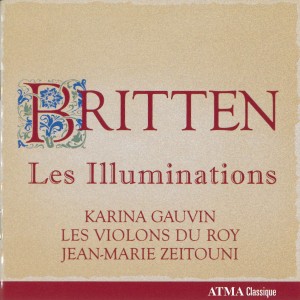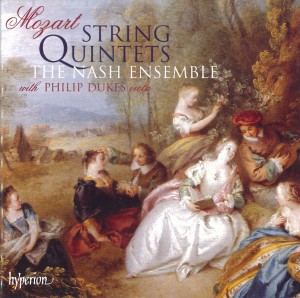 The recording to which I have returned time and again in the past six weeks, more often than to any disc in recent memory, is entitled Darkness Sure Becomes This City by an American string band based in Boston called Joy Kills Sorrow (www.joykillssorrow.com). A collection of fine young musicians from both coasts of the USA, the band is fronted by BC native Emma Beaton who was the recipient of the Canadian Folk Music Award for Best New Artist for her debut album Pretty Fair Maid several years ago. Although an accomplished cellist and pictured frailing a banjo on her own website, Beaton’s contribution to this “new grass” band is strictly vocal with her distinctive high soprano giving the band its signature sound. The other members bring a wonderful virtuosity to the mix with banjo (Wesley Corbett), guitar (national flat-picking champion, Matthew Arcara), mandolin (Jacob Jolliff, the first to ever receive a full mandolin scholarship to the Berklee School of Music) and double bass (Bridget Kearney). Corbett and Kearney provide the harmony vocals that are such an integral part of the bluegrass tradition, and Kearney, a past winner of the John Lennon Songwriting Contest, contributes most of the original songs and arrangements which are the group’s mainstay. Named after the old-time radio show which featured Bill Munroe and his Blue Grass Boys, Joy Kills Sorrow’s music is a compelling mix of traditional breakneck-paced picking and soulful ballads tinged with wry humour. Favourites include the Zydeco-flavoured New Shoes, the dense and rocking Send Me A Letter, Kearney’s sardonic Thinking of You and Such (“I miss you, but not that much – it’s not like I sleep in your clothes; I’m just thinking of you and such”), and Beaton’s quirky You Make Me Feel Drunk. Discovering this disc in my in-box and then spending an evening with Bruce Surtees hearing Joy Kills Sorrow play live at Hugh’s Room last month were distinct highlights of my summer. According to their blog, they traveled 8,726 miles and “killed 15,965 kg of sorrow” on the tour that brought them to Toronto and the Shelter Valley Folk Festival in Grafton. They certainly provided me with some Joy and I hope they will pass this way again soon.
The recording to which I have returned time and again in the past six weeks, more often than to any disc in recent memory, is entitled Darkness Sure Becomes This City by an American string band based in Boston called Joy Kills Sorrow (www.joykillssorrow.com). A collection of fine young musicians from both coasts of the USA, the band is fronted by BC native Emma Beaton who was the recipient of the Canadian Folk Music Award for Best New Artist for her debut album Pretty Fair Maid several years ago. Although an accomplished cellist and pictured frailing a banjo on her own website, Beaton’s contribution to this “new grass” band is strictly vocal with her distinctive high soprano giving the band its signature sound. The other members bring a wonderful virtuosity to the mix with banjo (Wesley Corbett), guitar (national flat-picking champion, Matthew Arcara), mandolin (Jacob Jolliff, the first to ever receive a full mandolin scholarship to the Berklee School of Music) and double bass (Bridget Kearney). Corbett and Kearney provide the harmony vocals that are such an integral part of the bluegrass tradition, and Kearney, a past winner of the John Lennon Songwriting Contest, contributes most of the original songs and arrangements which are the group’s mainstay. Named after the old-time radio show which featured Bill Munroe and his Blue Grass Boys, Joy Kills Sorrow’s music is a compelling mix of traditional breakneck-paced picking and soulful ballads tinged with wry humour. Favourites include the Zydeco-flavoured New Shoes, the dense and rocking Send Me A Letter, Kearney’s sardonic Thinking of You and Such (“I miss you, but not that much – it’s not like I sleep in your clothes; I’m just thinking of you and such”), and Beaton’s quirky You Make Me Feel Drunk. Discovering this disc in my in-box and then spending an evening with Bruce Surtees hearing Joy Kills Sorrow play live at Hugh’s Room last month were distinct highlights of my summer. According to their blog, they traveled 8,726 miles and “killed 15,965 kg of sorrow” on the tour that brought them to Toronto and the Shelter Valley Folk Festival in Grafton. They certainly provided me with some Joy and I hope they will pass this way again soon.
 Another very different sort of string band that I greatly enjoy is Les Violons du Roy (or as one CBC Radio Two host was wont to say in years gone by – Les Violons Doo Wah), Bernard Labadie’s Quebec City-based baroque chamber orchestra that has been broadening its repertoire to include the 20th century in recent years under the direction of Jean-Marie Zeitouni. For their latest venture into the modern era they are joined by soprano Karina Gauvin in a crystalline performance of Benjamin Britten’s Les Illuminations (ATMA ACD2 2601). Britten’s setting of the poetry and prose of Arthur Rimbaud with its dynamic contrasts and dramatic range is fully realized by this outstanding soloist, sensitively accompanied by the strings. The disc includes convincing, full-bodied performances of the Prelude and Fugue for 18-part String Orchestra, Op.29 and Variations on a theme of Frank Bridge, Op.10. Gauvin rejoins the ensemble for the final track, the rarely heard Now sleeps the crimson petal, a movement Britten originally intended for the Serenade for Tenor, Horn and Strings, Op.31 but discarded before that work’s first performance. The words by Alfred Lord Tennyson are set as a gentle barcarole with the voice in duet with the horn effectively provided by Louis-Philippe Marsolais. This is a timely release for Toronto audiences who will have the opportunity to experience Britten’s Death in Venice in Canadian Opera Company performances from October 16 to November 6.
Another very different sort of string band that I greatly enjoy is Les Violons du Roy (or as one CBC Radio Two host was wont to say in years gone by – Les Violons Doo Wah), Bernard Labadie’s Quebec City-based baroque chamber orchestra that has been broadening its repertoire to include the 20th century in recent years under the direction of Jean-Marie Zeitouni. For their latest venture into the modern era they are joined by soprano Karina Gauvin in a crystalline performance of Benjamin Britten’s Les Illuminations (ATMA ACD2 2601). Britten’s setting of the poetry and prose of Arthur Rimbaud with its dynamic contrasts and dramatic range is fully realized by this outstanding soloist, sensitively accompanied by the strings. The disc includes convincing, full-bodied performances of the Prelude and Fugue for 18-part String Orchestra, Op.29 and Variations on a theme of Frank Bridge, Op.10. Gauvin rejoins the ensemble for the final track, the rarely heard Now sleeps the crimson petal, a movement Britten originally intended for the Serenade for Tenor, Horn and Strings, Op.31 but discarded before that work’s first performance. The words by Alfred Lord Tennyson are set as a gentle barcarole with the voice in duet with the horn effectively provided by Louis-Philippe Marsolais. This is a timely release for Toronto audiences who will have the opportunity to experience Britten’s Death in Venice in Canadian Opera Company performances from October 16 to November 6.
 My first experience playing chamber music in an organized fashion goes back almost two decades when I packed up my cello and headed off to CAMMAC’s summer courses at Lake MacDonald in Quebec. There I had the great pleasure of playing in a string quintet under the tutelage of one of the members of Les Violons du Roy, Michelle Seto. That week at music camp was a life changing experience for me and I have rarely felt the power of music as strongly as on that first evening when I was concentrating so hard on playing the repeated pedal note of the opening of Bach’s St. John Passion when the chorus suddenly entered with the haunting “Herr, Herr, Herr unser Herrscher” sending shivers down my spine. To this day the St. John Passion and Mozart’s String Quintet in B-Flat Major K174 remain among my most vivid musical memories. It is evidently thanks to Mozart’s friend Michael Haydn, Papa Joseph’s younger brother, that we have the legacy of the six string quintets. Mozart was always drawn to the dark sonority of the viola and was inspired by Haydn’s Notturno for two violins, two violas and cello - previous string quintets, notably those of Boccherini, had employed a second cello rather than viola. Mozart’s first foray into the form was the aforementioned B-flat major quintet composed in 1773, a spacious divertimento-like work. It was more than a dozen years before he would return to the genre with the contrasting pair of quintets K515 and K516 in C major and G minor respectively. Composed after the celebrated six “Haydn” string quartets and the success of The Marriage of Figaro, these are fully developed mature works. Mozart completed the set with a transcription of the C minor wind serenade originally for pairs of oboes, clarinets, bassoons and horns, and two original works in D major and E-flat major composed in the final months of his life. A new recording of the complete Mozart String Quintets features members of the renowned Nash Ensemble with violist Philip Dukes (Hyperion CDA67861/3). These sensitive performances bring out the contrasting moods of the quintets from the playfulness of the early B-flat major to the darker colours of minor key offerings. It was a treat to revisit these works in this new recording from the lush acoustic of St. Paul’s Church, Depford, London. For me however these performances won’t replace the 1973 recordings featuring Arthur Grumiaux and friends which I got to know and love when they were reissued as part of the Complete Mozart Edition by Philips back in 1991. They are currently available on the budget Philips Duo series spread over four CDs encompassing “Mozart – The Complete Quintets Volumes 1 & 2” (2PM2456-055 & -058).
My first experience playing chamber music in an organized fashion goes back almost two decades when I packed up my cello and headed off to CAMMAC’s summer courses at Lake MacDonald in Quebec. There I had the great pleasure of playing in a string quintet under the tutelage of one of the members of Les Violons du Roy, Michelle Seto. That week at music camp was a life changing experience for me and I have rarely felt the power of music as strongly as on that first evening when I was concentrating so hard on playing the repeated pedal note of the opening of Bach’s St. John Passion when the chorus suddenly entered with the haunting “Herr, Herr, Herr unser Herrscher” sending shivers down my spine. To this day the St. John Passion and Mozart’s String Quintet in B-Flat Major K174 remain among my most vivid musical memories. It is evidently thanks to Mozart’s friend Michael Haydn, Papa Joseph’s younger brother, that we have the legacy of the six string quintets. Mozart was always drawn to the dark sonority of the viola and was inspired by Haydn’s Notturno for two violins, two violas and cello - previous string quintets, notably those of Boccherini, had employed a second cello rather than viola. Mozart’s first foray into the form was the aforementioned B-flat major quintet composed in 1773, a spacious divertimento-like work. It was more than a dozen years before he would return to the genre with the contrasting pair of quintets K515 and K516 in C major and G minor respectively. Composed after the celebrated six “Haydn” string quartets and the success of The Marriage of Figaro, these are fully developed mature works. Mozart completed the set with a transcription of the C minor wind serenade originally for pairs of oboes, clarinets, bassoons and horns, and two original works in D major and E-flat major composed in the final months of his life. A new recording of the complete Mozart String Quintets features members of the renowned Nash Ensemble with violist Philip Dukes (Hyperion CDA67861/3). These sensitive performances bring out the contrasting moods of the quintets from the playfulness of the early B-flat major to the darker colours of minor key offerings. It was a treat to revisit these works in this new recording from the lush acoustic of St. Paul’s Church, Depford, London. For me however these performances won’t replace the 1973 recordings featuring Arthur Grumiaux and friends which I got to know and love when they were reissued as part of the Complete Mozart Edition by Philips back in 1991. They are currently available on the budget Philips Duo series spread over four CDs encompassing “Mozart – The Complete Quintets Volumes 1 & 2” (2PM2456-055 & -058).
We welcome your feedback and invite submissions. CDs and comments should be sent to: The WholeNote, 503 – 720 Bathurst St. Toronto ON M5S 2R4. We also encourage you to visit our website, www.thewholenote.com, where you can find added features including direct links to performers, composers and record labels, “buy buttons” for on-line shopping and additional, expanded and archival reviews.
David Olds
DISCoveries Editor
discoveries@thewholenote.com



